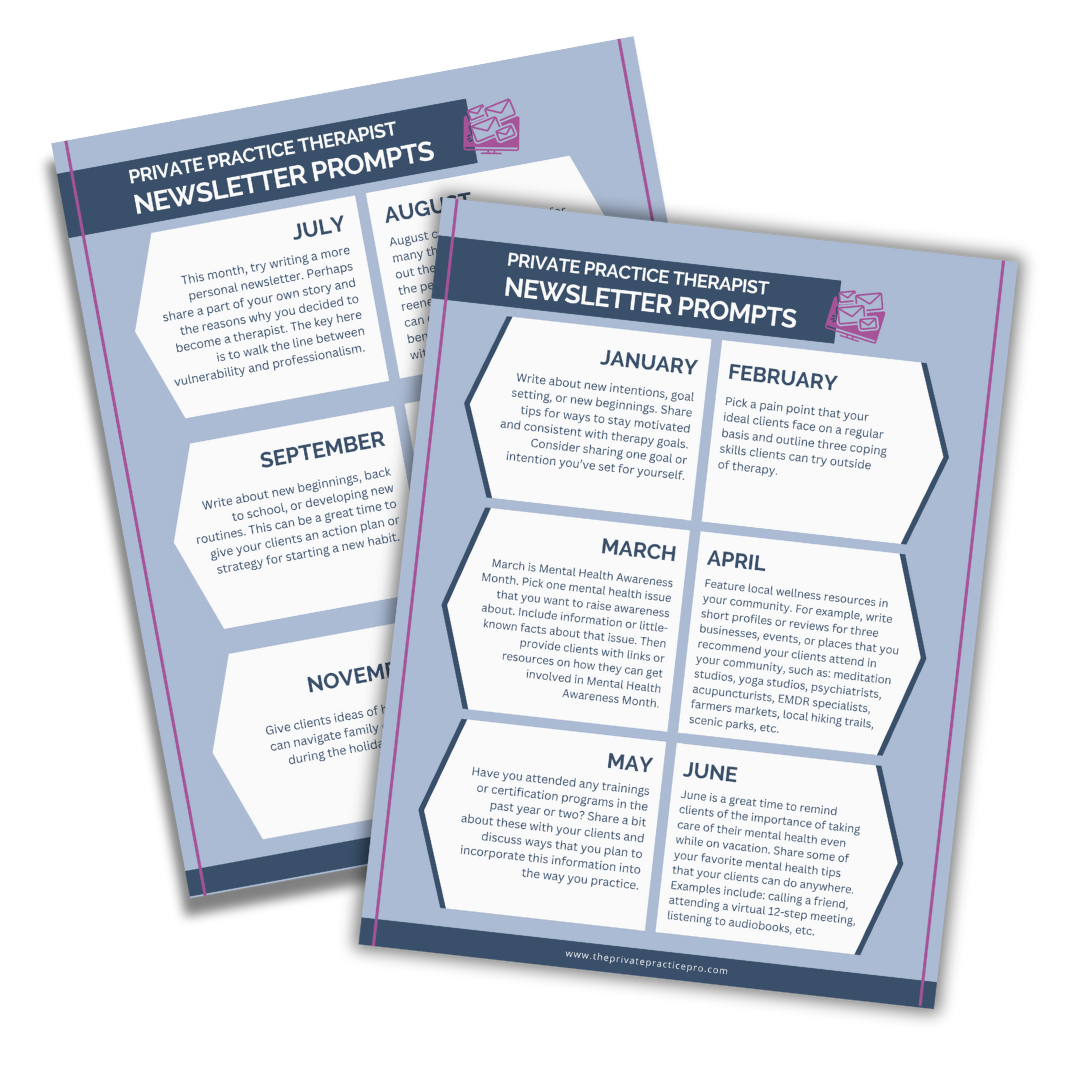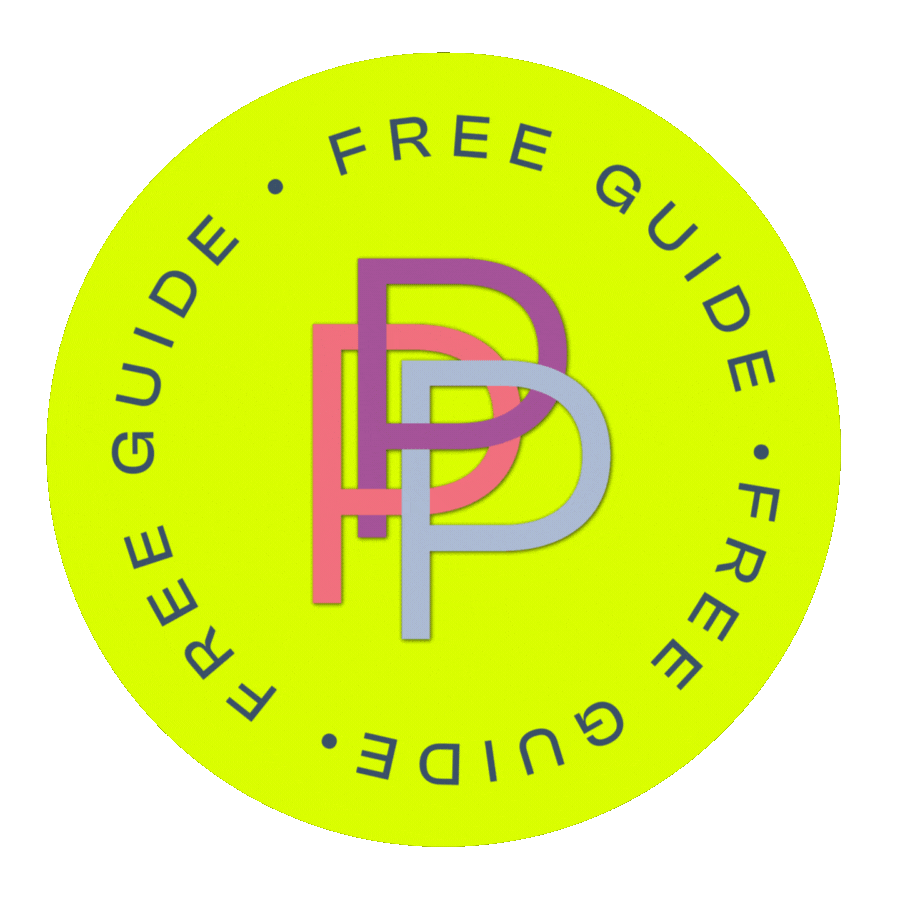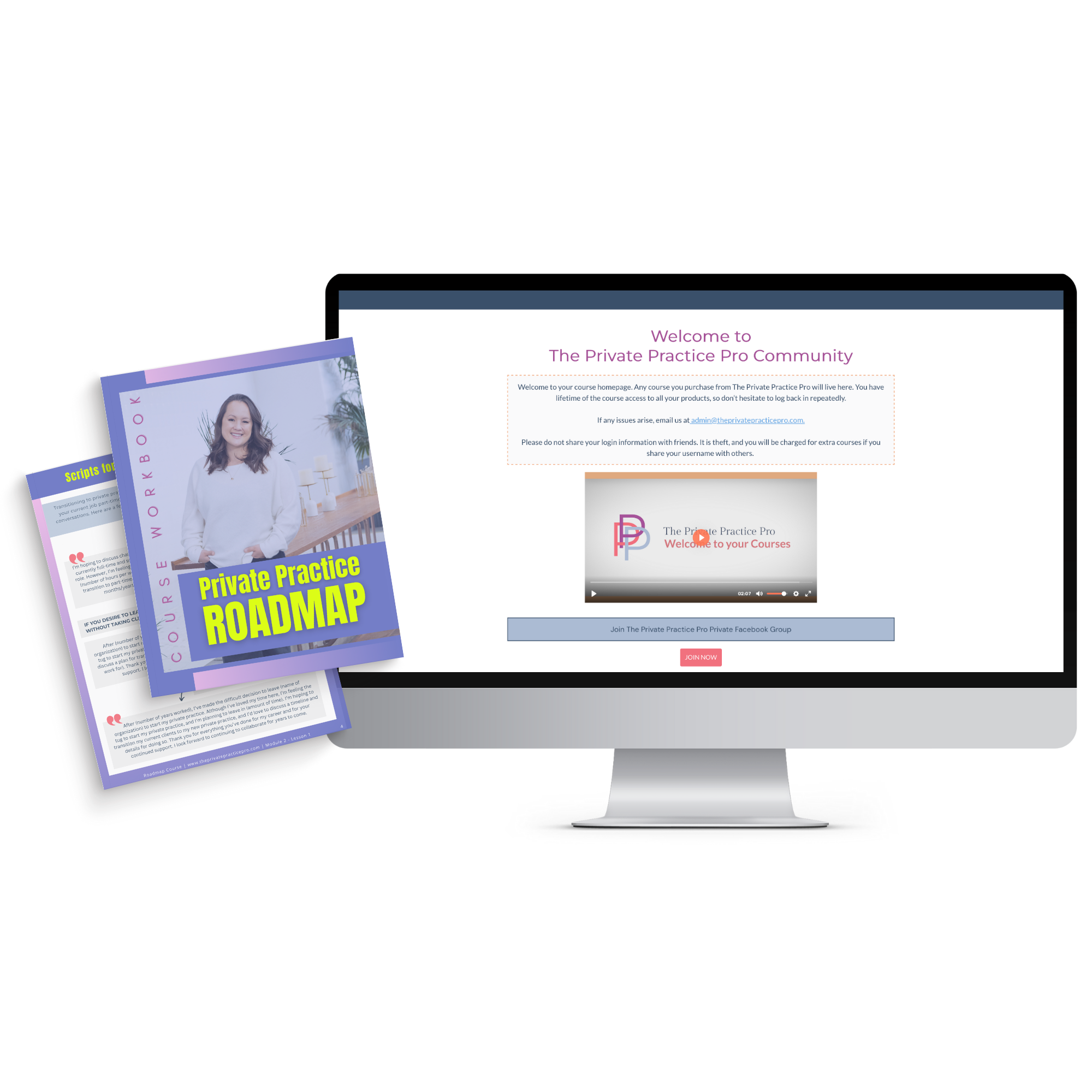
PRIVATE PRACTICE THERAPIST
Newsletter Prompts
If you’re stuck staring at a blank screen every time you try to email your list, this freebie is for you. These seasonal newsletter prompts were created just for therapists—and they’ll help you connect with your audience without sounding like a content machine.
You don’t need to reinvent the wheel or write weekly essays. These monthly ideas will help you stay consistent, offer value, and show up as the grounded, relatable expert your clients are looking for.
Take a
Explore online courses to help you launch and fill your practice!

MEET YOUR COACH
I’m a licensed therapist, business coach, and the founder of Private Practice Pro. When I first started my private practice, I struggled to find my footing—I tried to take on everyone and everything, and it left me feeling scattered and unsure. Once I discovered the power of defining my niche, everything changed. Now, I help therapists like you build thriving practices by focusing on what you do best and who you’re best equipped to help.
I’ve been where you are, and I’m here to walk you through the exact steps that helped me grow my own practice into something I truly love. Let’s get started!
Featured In:
LOOKING FOR MORE? I GOT YOU!
Private Practice Tips
Check out my YouTube for more tips!
The Therapists’ Essential Guide to Starting a Private Practice
MARKETING
FINANCE
How much does it cost to open a therapy private practice?
3 Tips to Find Your Niche: A Must for Success in Private Practice!
BUSINESS


















